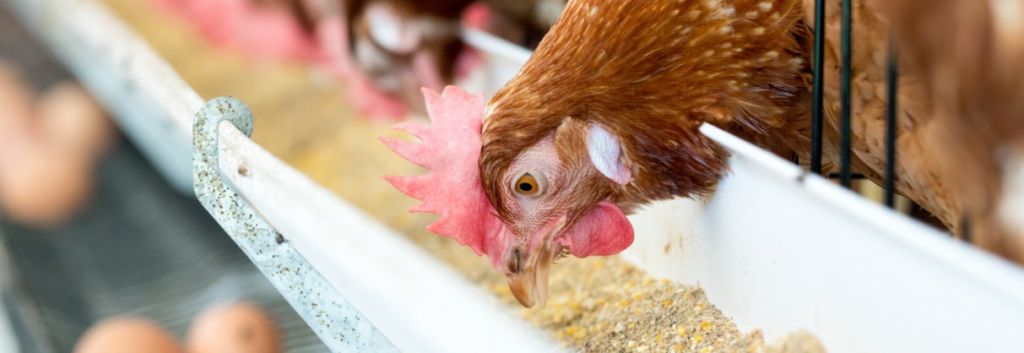Novozymes has released a new enzyme that breaks down bacterial cell debris in the gut and allows chickens to absorb more nutrients from their food.
The Danish industrial biotech giant partnered with the Dutch health and nutrition company DSM to produce the bacterial muramidase enzyme solution, which is called ‘Balancius’. It has an interesting story behind it, as it was initially extracted from a rare fungus found in a pigsty in Japan in the 1980’s that is able to grow in a high pH environment.
“It is the first and only enzyme innovation in the world that targets bacterial debris (peptidoglycans) in the intestine,” commented Susanne Palsten Buchardt, Vice President at Novozymes. “No other technology works like this.”
Buchardt notes that the enzyme only targets debris from dead bacteria and does not have a negative impact on the chicken gut microbiome.
The companies believe the enzyme will be a useful feed additive for farmers to give their birds, because it will allow them to reduce the total amount of feed needed by 3%.
“Including Balancius in the feed of a broiler flock of 1 million birds… means 125,000 kgs less feed needed to grow the same quantity of meat: a highly significant feed cost saving,” explained Buchardt. “In this way, it also provides sustainable benefits because less feed is needed.”
Feed conversion ratio is commonly used in farming and compares total amount of feed with amount of meat produced. Novozymes and DSM have data from 40 studies showing a significant improvement in feed conversion ratio and weight gain in chickens who were given Balancius. They are currently investigating if it could have the same effect in other species.
Images via Shutterstock





